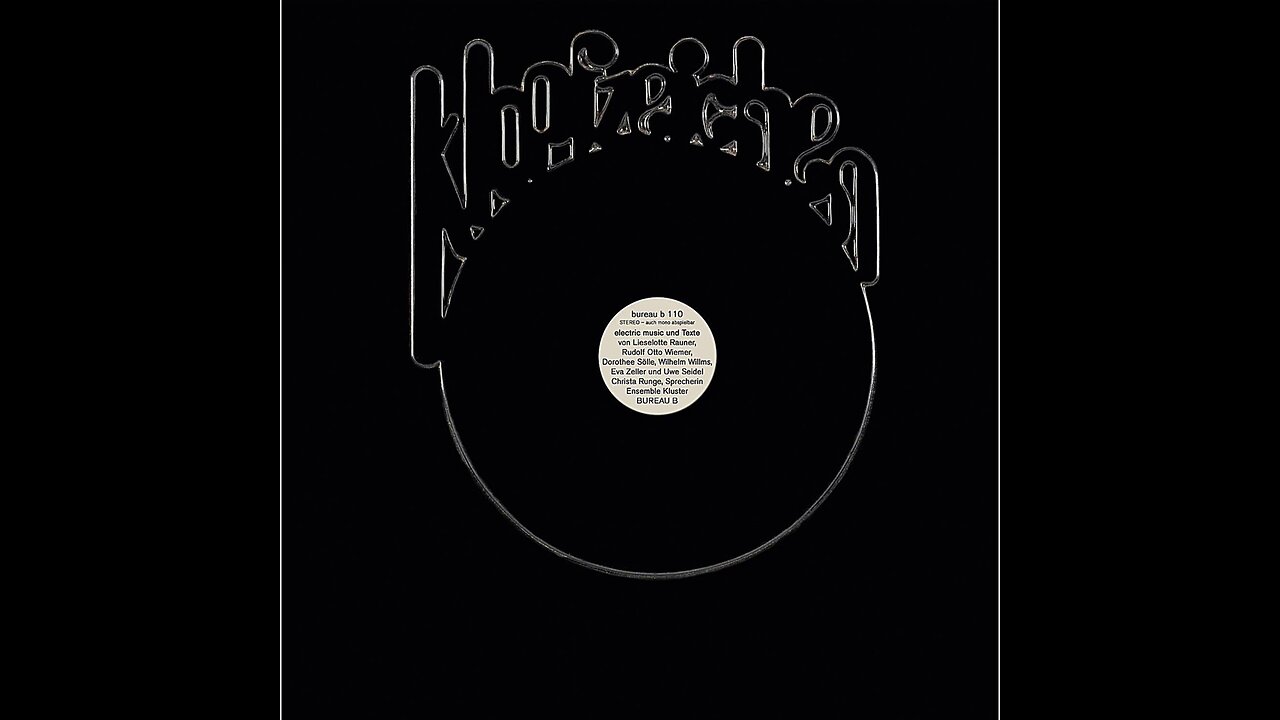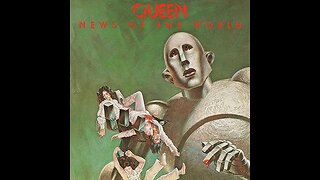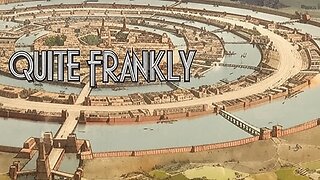Premium Only Content

Klopfzeichen - Kluster
Klopfzeichen is the debut full-length album by German experimental music trio Kluster.
Klopfzeichen was recorded on 21 December 1969 at Rhenus-Studio, Gordorf, Germany. Liner notes on the CD reissue on the Hypnotic label as well as some websites place the recording date precisely one year later in 1970. This is incorrect as it would place the recording after the initial release date. In addition Kluster founder Conrad Schnitzler states in interviews that the recordings took place during the same period as the first Tangerine Dream album, Electronic Meditation, which occurred in late 1969.
Klopfzeichen was released in November 1970 on the Schwann label. With a plastic embossed cover, including two multi fold-out inserts. Only 300 copies of the original LP were pressed and sold.
The album was first reissued by Schwann in 1980 – with new cover art and a sticker touting Cluster and Conrad Schnitzler's previous membership in Tangerine Dream – and then on the U.S.-based Hypnotic label in 1996. This CD reissue also contains a nearly 16-minute-long bonus track from the 1980 Cluster & Farnbauer release Live In Vienna.
The album was again reissued on the Japanese Captain Trip label on April 20, 2007 as a 450 copy limited CD edition with an adaption of the original cover art-work and a bonus track by Eruption, "Black Spring", from their 1971 sessions.
In 2012 Bureau-B released another reissue on CD as well as on 180gr vinyl.
Tracks
1. 00:00:00 Kluster Kluster 1 (Electric Music und Texte)
2. 00:23:33 Kluster Kluster 2 (Electric Music)
180 gram vinyl version. Imagine finding a message in a bottle, forty years after it was dispatched. That is what it feels like when you listen to Kluster's Klopfzeichen for the first time, mysterious, hard to decipher, a relic of a time long since passed. The handwriting is archaic, barely legible, the complex contents only falling into place when examined through the light of historical context. Klopfzeichen is an incredibly important release for the time in which it appeared (1971), an extraordinarily significant document. More than anything, the three messengers Konrad Schnitzler, Hans-Joachim Roedelius and Dieter Moebius formulated a radical claim with Klopfzeichen: anarchic, unlimited freedom of art and music. Kluster's music may have aged, but their message has not. That the recording session happened at all is, curiously enough, due to a church musician, a man one would then have described as extremely progressive. Oskar Gottlieb Blarr not only made it possible for these musical enfants terribles to work in Düsseldorf's Rhenus Studio, he also orchestrated the release of Klopfzeichen shortly afterwards through the Schwann Verlag, a publisher closely associated with the church, on their own record label, AMS Studio (subtitled "Werkraum für neue Kirchenmusik"/trans. "workspace for new church music"). This "ecclesiastical" affinity is probably the reason for the strongly-committed political and religious texts spoken over the music on the A-side. Kluster lyrics they are not, and they sound a little strange today. True to their understanding of artistic freedom (Joseph Beuys was undoubtedly an influence), Kluster improvised with all sources of sound they could lay their hands on: guitar, bass, cello, flute, drums and various other pieces of equipment not usually intended for musical use. None of them could profess to be an expert on any of the instruments. They were brilliant dilettantes, a decade before the concept was invented. Electronics? No sign of them. The budget did not stretch to synthesizers or anything of that ilk. That said, a certain Conny Plank was on board as sound engineer for the early recordings. He added an apocalyptic character to Kluster's menacing and chaotic music. Klopfzeichen was the most radical album of the early German pop music avant-garde by a country mile. Its sounds and noises had nothing in common with the sequencer-generated electronic music emerging from Berlin or Düsseldorf. Kluster music was Angstmusik, the music of fear. Liner notes by Asmus Tietchens.
-
 39:26
39:26
Art, Music, Drama & Truth Seeking
1 day agoNews Of The World ~ Queen
27 -
 LIVE
LIVE
Geeks + Gamers
44 minutes agoMARIO KART WARS
139 watching -
 UPCOMING
UPCOMING
Anthony Rogers
2 days agoEpisode 365 - Free Speech
70 -

Right Side Broadcasting Network
5 days agoLIVE: Exclusive White House Special: President Trump's First 100 Days - 4/30/25
40.7K14 -
 1:02:30
1:02:30
BonginoReport
5 hours agoFBI Demotes Woke Agents Who Kneeled for George Floyd (Ep. 38) - Nightly Scroll with Hayley
84.9K80 -
 2:08:04
2:08:04
Tucker Carlson
3 hours agoMatt Walsh: Any country that can’t function without American aid has no right to exist.
75.6K141 -
 14:09
14:09
China Uncensored
7 hours agoThis Is China's LAST CHANCE Survive the Tariff War
5.34K6 -
 43:48
43:48
The Kevin Trudeau Show
11 hours agoHow I Manage My Time (And Get 10x More Done)
2.42K6 -
 1:24:31
1:24:31
Kim Iversen
5 hours agoPutin's ONLY Option To End The War Is TOTAL TAKEOVER Of Ukraine | Scott Horton
50.9K50 -

Quite Frankly
8 hours ago"Atlantis, Open Lines, RFK & Geo-Engineering" ft The Observation Lounge 4/30/25
16.9K9